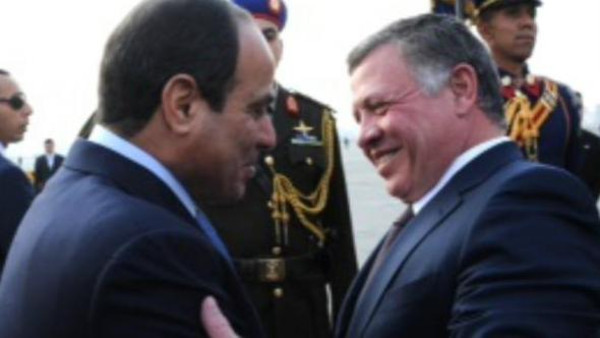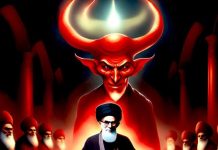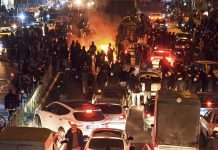Egypt sends Assad secret arms aid, including missiles, with Russian funding
DEBKAfile Exclusive Report August 30, 2015/Egyptian President Abdel-Fatteh El-Sisi has begun supplying Bashar Assad with arms, including missiles, after concluding a secret deal with Russian President Vladimir Putin and his consent to pick up the tab, debkafile’s military and intelligence sources reveal. The first batch of short-range Egyptian-made surface missiles has reached the Syrian forces fiercely battling rebels for weeks for the recovery of the strategic town of Zabadani without breaking through (See picture showing missile with Egyptian factory markings.) It is not clear if the Egyptian missiles have also been passed to the Hizballah forces fighting with the Syrian army, considering that El-Sisi and Hizballah are at daggers drawn. Our sources also reveal that the Egyptian arms consignments are freighted from Port Said to the Syrian port of Tartus by Ukrainian cargo vessels. These ships are today the most popular means of transport for clandestine and Black Market arms freights across the Mediterranean and Adriatic Seas. Sums and quantities are yet to be determined, but Western intelligence sources report that Ukrainian vessels called in at Egyptian ports at least three times from July 22 to Aug. 22 and sailed off to Syria laden with weapons.
It is a deal that may affect the fate of the Assad regime from five, often conflicting, perspectives:
1. By providing Assad with an additional source of weapons, Cairo is reducing his dependence on Iran. This suits the Syrian ruler very well at this time, because he is fully aware of Tehran’s latest steps to draw Gulf rulers and Moscow into supporting a plan for ending the Syrian war, by installing a provisional government in Damascus and so easing his exit.
2. A certain parting-of-the ways has developed between Moscow and Tehran on how to terminate the Syrian conflict. By sending Assad arms, Cairo casts its vote for Moscow’s perspective in preference to Tehran’s.
3. El-Sisi is now diametrically opposed on Syrian policy to the GCC led by Saudi Arabia and the United Arab Emirates who are patrons of the rebel movement dedicated to toppling Assad.
4. He is also on the opposite side to Israel and Turkey. Israel backs the rebels fighting in southern Syria to create a barrier against the encroachment of Hizballah and Iranian Al Qods Brigades up to its northern border and the Golan. Turkey and the US have reached terms on Syrian policy. Saturday, Aug. 30, Turkish jets carried out their first air strikes in Syria against the Islamic State, as part of its deal with the US.
5. The Russian-Egyptian understanding on the Syrian question is a signpost that clearly marks the way to deepening military and strategic relations between Moscow and Cairo. Taking the lead on a resolution of the Syrian question, the Kremlin staged a discussion last Tuesday, Aug. 18, with three Arab visitors: Jordan’s King Abdullah, UAE Crown Prince Sheikh Mohamed bin Zayed Al Nahyan and the Egyptian president. It was led by Mikhail Bogdanov, Deputy Foreign Minister in charge of Middle East Affairs, and followed by individual tête-à-têtes between Putin and each visitor in turn. The Russian and Egyptian leaders did their best, according to debkafile’s Moscow sources, to draw the Jordanian and UA rulers over to their pro-Assad policy, or at least accept common ground for a measure of cooperation. In effect, Putin and El-Sisi were out to convince Jordan and the US to back away from the Syrian rebel cause and the Saudi line. Their future actions may indicate how far they succeeded.
Bashar al-Assad’s fate: Is a ‘face-saving’ deal in play?
Raed Omari/Al Arabiya/August 31/15
Recent meetings of key international and regional players have contributed to an emerging sense that the Syrian war is finally on track for resolution after almost five years. A well-informed Syrian opposition source told me that a framework for a political and mutually acceptable solution to the crisis is in the making. On the fate of President Bashar al-Assad, the source said: “A face-saving formula is being drafted.”Washington has toned down talk of Assad’s departure over the last year. In March, Secretary of State John Kerry said the White House would have to negotiate with Assad for a political transition in Syria. Assad has no place in a post-war Syria, but his replacement has to be decided during a transitional period by the warring parties, including the Russian-backed regime
Following dismay over this comment, State Department spokeswoman Marie Harf quickly issued a clarification: “There has always been a need for representatives of the Assad regime to be a part of this process. It has never been and would not be Assad who would negotiate.” Harf’s statement lies at the heart of the current U.S. vision of a negotiated political solution for Syria in which the Assad regime, rather than the man himself, is a component. Assad’s departure is not as much a priority for Washington as is the fight against the Islamic State of Iraq and Syria (ISIS). In order to avoid repeating the mistakes of Iraq and Libya following the ousters of Saddam Hussein and Muammar Qaddafi respectively, U.S. policy on Syria is centered around keeping the state’s institutions intact.
As such, the Assad regime – not the man – is what matters. The U.S. rebel-training program, and its anti-ISIS coordination with Jordan and Turkey, are components of its new policy on Syria whereby moderate rebels will be trained to fight ISIS rather than the regime.
Assad has no place in a post-war Syria, but his replacement has to be decided during a transitional period by the warring parties, including the Russian-backed regime. To avoid more tension with Russia and Iran, a veteran U.S. politician told me that the White House is studying two face-saving scenarios for Assad: either he leaves office within a transitional solution; or he remains in office until his term ends, without being allowed to run in the next presidential election. However, that may not be accepted by Syrian rebels, especially the Free Syrian Army (FSA).




















